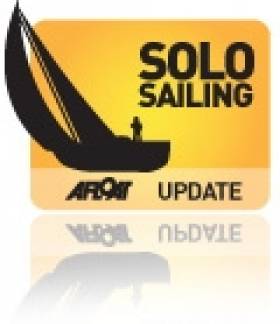Displaying items by tag: Alex Bennett
Solo Sailing Conference Offers Charter of Performance Yachts
Irish solo sailing fans may be interested in the annual Solo Racing Festival at the Royal Southern Yacht Club, Hamble on Saturday 12th March.
Given the Figaro race is coming to Dun Laoghaire in August a talk on the Artemis Academy with John Thorn (Figaro 2) will be of particular interest.
Owen Clarke's designer Merfyn Owen, who lives in Hamble will be attending as well as colleagues from their brokerage partners Boatshed Performance.
So whether your interest be solo sailing or short-handed sailing in general they will be there to answer questions on design, construction, as well as sale/purchase and charter of offshore performance yachts.
The Race Fair is an open house from 10.00 for race organisers to meet and greet potential skippers from; Global Ocean/Class 40, Mocra, UK mini group, RORC, SORC, Biscay Challenge, AZAB. Floating boat show, 8 boats including the OC class 40, 2 minis, A35, J105, Figaro 2, Sunfast 3200.
There is a Book Signing, Alex Bennett signing copies of High Seas High Stakes and showing Fuji DVD Mike Golding is opening the talks at 11,00.
Followed by:
Winning Mind Set with Ian Brown, sports psychologist
Global Ocean race with Oliver Dewar
Two Star/Ostar with John Lewis, RWYC
30m trimaran design with Nigel Irens (Idec, Sodebo)
Artemis Academy first term report with John Thorn (Figaro 2)
Route du Rhum with Marco Nannini, (class 40)
all in the spendid riverside setting of the Royal Southern Yacht Club, Hamble.
More HERE.
























































